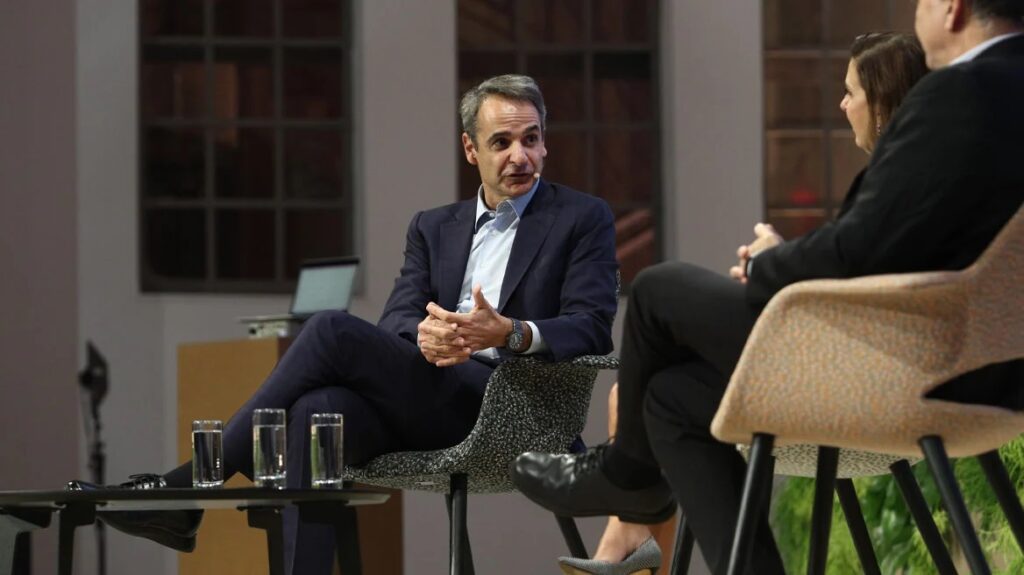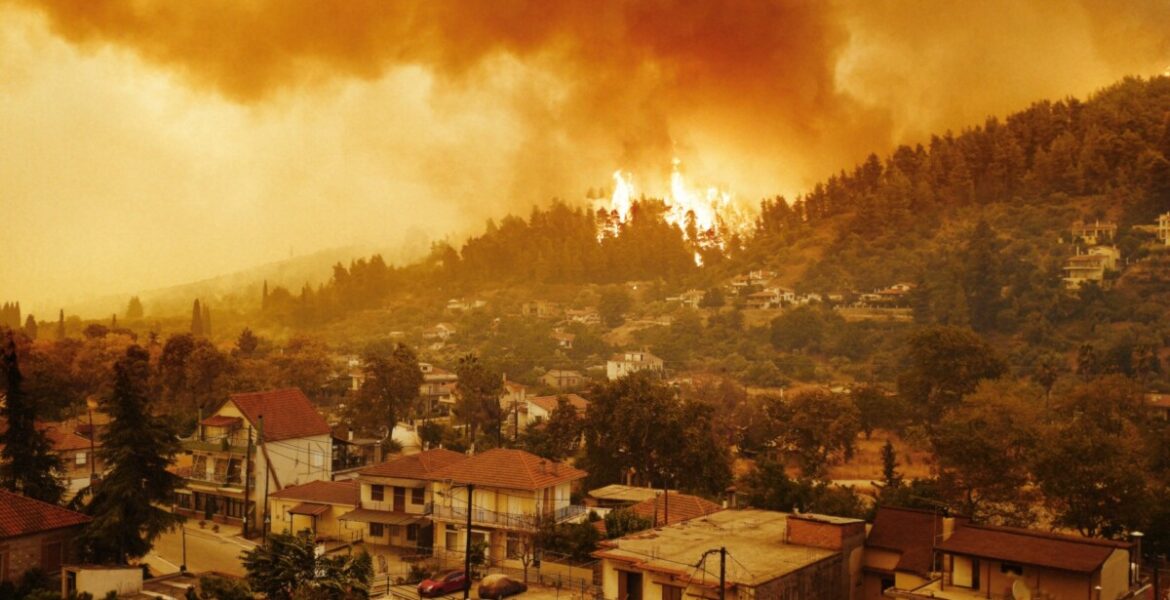The impressive possibilities of Artificial Intelligence in terms of the accurate forecast of extreme weather phenomena, consequently, the prevention of widespread disasters and the avoidance of costs to inanimate and animate, was one of the parameters that were illuminated on Thursday, November 30, on the occasion of the festive event for the completion of 15 years since the start of operation of the Greek department of Google.
Prime Minister Kyriakos Mitsotakis pointed out, "Along with public Health and Education, Civil Protection is one of the three main areas where modern Artificial Intelligence tools can make a difference. More accurate and rapid estimates are possible with sophisticated extreme weather forecasting models. In this way, we gain valuable time to save lives and protect property and the natural environment.

"The solutions are already workable - they have to do with climate change and mainly with more accurate forecasting models. Google already has accurate flood forecasting models, which can be far more accurate than we could have imagined even a few years ago. And ensuring access to this technology can be a lifesaver. The more sophisticated weather forecasting models become, the better we can prepare for weather events.
"The same applies to fires. We are already testing technologies to detect fires faster, vital to our early intervention. How a fire spreads is highly complex, but no problem is too complex to be tackled by detailed AI analyses.”

After the Prime Minister, Yossi Matias, Vice President of Engineering and Research of Google, who came to Greece exclusively to attend the anniversary event, took it upon himself to explain in more detail how Artificial Intelligence achieves the early prevention of natural disasters.
Beyond digital technology itself, i.e. the stratospheric development that has taken place from a purely technical point of view in semiconductors and electronic computers, thanks to which it is possible to handle unimaginable amounts of data instantaneously, the basic philosophy behind forecasting models is precisely that the colossal amounts of information.

A computer system acquires a vast database through Big Data, simulating the human experience. Oversimplifying a highly complex process, one could say that Big Data is the foundation upon which the ability of computers to "learn" and, secondarily, make predictions is built.
In the case of floods, one of the most frequent natural disasters and a direct side effect of the climate crisis, the Google Research Department has already been using advanced applications of Artificial Intelligence and geospatial analysis since 2018 to generate information on the probability of flooding in specific areas and in real-time.
For this purpose, Google has created a separate section, the Flood Hub platform, while in some cases, flood information is available directly from the search engine and the Maps application.
The Flood Hub covers 80 countries worldwide, with the possibility of forecasting up to 7 days before the occurrence of extreme weather events. Google serves 460 million people in Europe, Central America, Africa, and Asia-Pacific. A typical example of its action is Chile, where last August, Google predicted the intensity of the impending rains and contributed to the early removal of residents from high-risk areas while giving time to the competent authorities and citizens to limit the extent of the damage.

In a similar way, Google helps protect the human community from forest fires, on the one hand by instantly locating the exact spot where a fire breaks out. And on the other hand, with the prognosis for the direction of its spread. It is typical that, only for 2023, Google's "112" warned 30 million people in 120 fire incidents worldwide.
For fires, Google utilises Artificial Intelligence applications combined with satellite images, which are updated every 15 minutes, offering the Fire Detector - i.e. the automatic control system - the necessary information to proceed with the next steps, the alarm, etc.
The time saved thanks to Google's intervention is invaluable, allowing fire brigades to plan their action better and more precisely. When the fire has already started, and the extinguishing operation is in progress, the AI models guide the firefighters in advance to the places where the fire is expected to reach, thus allowing them to create an interception front.
At the same time, in normal conditions, when there is no urgent need for intervention, Google's advanced tools help fire departments worldwide improve their officers' training in exercises simulating real fires.
READ MORE: DIGITAL NOMADS: “Work From Greece” visits Greek destinations.


